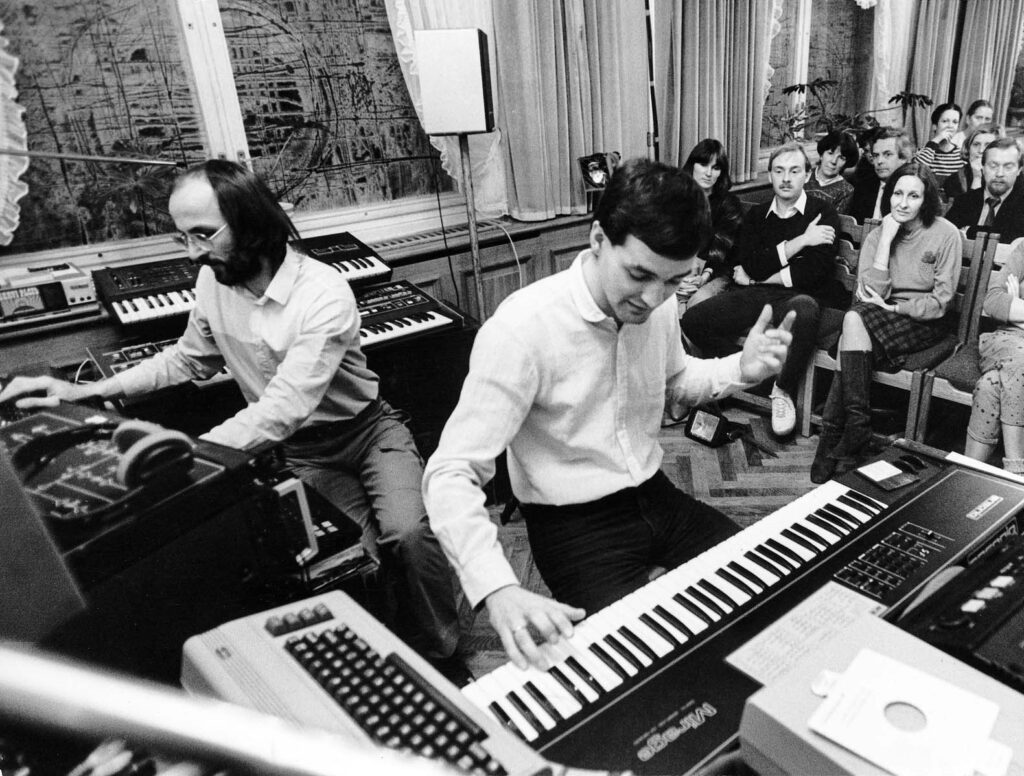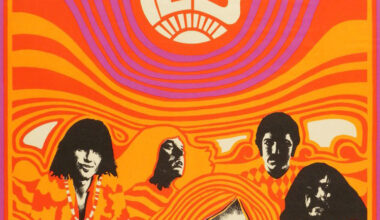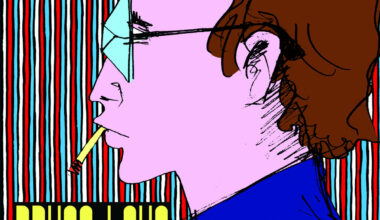Sweeping the forgotten corridors of sound, Scott Blixen sets his sights on Servi

If true socialism had triumphed, the synth duo Servi would have almost certainly recorded the soundtrack to ‘Blade Runner’ and been globally revered synth gods. Instead, locked down in East Germany’s surveillance state, the Christian rock group offered a unique type of sonic salvation to church-goers. Jan Bilk and Tomas Nawka formed Servi Pacis (Servants Of Peace) in 1975, but had slimmed down to Servi by the early 80s.
Their performances at religious gatherings branded them subversive in the GDR, where the church was seen as a threat to communist hegemony. While this may have impeded their recording career, it did have compensations. The group was gifted a Moog Prodigy after a priest in West Germany organised a collection among his parishioners. Smuggling synthesisers into the country was outrageously expensive, so Servi were truly blessed.
In 1986, the release of their debut LP ‘Rückkehr Aus Ithaka’ was belatedly sanctioned by Amiga, the GDR’s only record label. Made independently, it was the first LP to be recorded outside a state-owned studio. Ostensibly an instrumental concept album about the epic quest of Odysseus in Homer’s ‘Iliad’, Servi deny it implied social criticism, however veiled. What it did reveal was the group’s schizophrenic nature, juxtaposing diverse elements into a herky-jerky, but spiritually nourishing, whole.
‘Kirkes’ is a multifaceted, 10-minute suite of shifting moods – which are at times meditative, sombre and joyful – augmented by electronically treated birdsong. The accordion melody of ‘Sirenen’ is cushioned by soothing synthesisers, until a startling cry of anguish rips through the reverie and a ‘Miami Vice’-like theme gatecrashes the party. ‘Laistrygonen’ is, for my money, their most breathtaking piece, with a mesmeric piano motif, typewriter percussion and kaleidoscopic synth curlicues.
If 1988’s follow-up album ‘Pas De Deux In H’ didn’t reach the abstract brilliance of their first release, fans would only have been mildly miffed. Retaining their taste for oddness, the group combined the blandest flavours of 80s tech into a rich broth of uneasy listening. While similar ingredients were used in the glossy soundtracks of Czech defector Jan Hammer, Servi were describing a grittier landscape hidden behind the Iron Curtain.
It transpires that the authorities were justified in their suspicion of God-fearing fifth columnists. The falsified results of 1989’s general election were revealed by Church groups, hastening the collapse of East Germany’s already fractured totalitarian state. Servi survived the tumult of Die Wende (the country’s post-communist transition), producing theatre music and spectacular live performances of their work.
The Lord does indeed move in mysterious ways.



